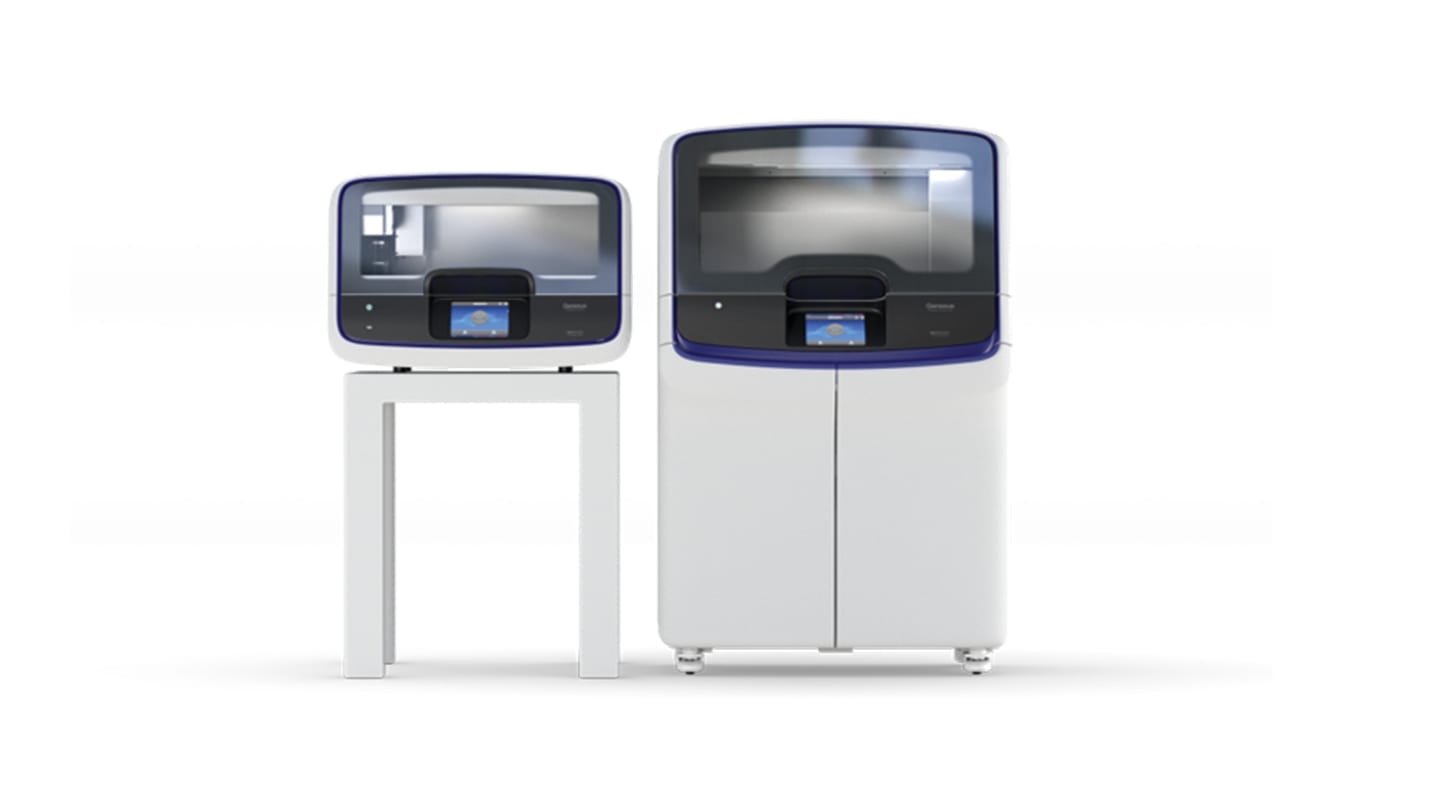
What is the focus of your laboratory, and how does next-generation sequencing (NGS) fit into the molecular workflow?
As one of Germany’s most recently founded university hospitals, established in 2019, we specialize in comprehensive molecular profiling of solid tumors and hematologic neoplasms.
Initially, we implemented a hybrid-capture-based NGS approach for genomic profiling of tumor research samples. However, we faced logistical limitations due to the complexity and batching requirements of high-throughput assays. To increase flexibility and turnaround speed, we adopted Thermo Fisher Scientific’s Ion Torrent™ Genexus™ System, integrating the Oncomine™ Precision Assay and the Oncomine™ Myeloid Research Assay.
This platform has proven to be highly efficient in our molecular workflow. We currently perform up to five NGS runs per week on the Genexus System with minimal hands-on time and rapid turnaround times.

Which cancer types necessitate the use of comprehensive genomic profiling (CGP) in your laboratory for research purposes?
We apply CGP across a broad spectrum of tumor types, including colorectal, melanoma, breast, ovarian, pancreatic, and prostate cancers, non-small cell lung cancer, and cancers of unknown primary. CGP provides valuable insights when smaller panels yield no relevant variants or when we are dealing with rare or complex tumor entities.
What interested you about the Oncomine Comprehensive Assay Plus on the Genexus System?
Automation and turnaround time were key drivers in our evaluation process. Given our structure as a young university hospital with a focused team, we aim to implement highly efficient workflows without compromising analytical depth.
Our positive experience with the Oncomine Precision Assay and the Oncomine Myeloid Assay on the Genexus System laid a strong foundation. Now that the Oncomine™ Comprehensive Assay Plus is available, we’re excited to explore its potential to deliver broad genomic profiling with minimal hands-on time and no need for batching.
A major benefit of this amplicon-based CGP approach is its ability to deliver robust results from limited input material – a common challenge in prostate cancer and other tumor types. In contrast to hybrid-capture-based NGS assays, which often require higher input, the Oncomine Comprehensive Assay Plus allows us to include samples that would otherwise be excluded.

Which features of the Oncomine Comprehensive Assay Plus most enhance your molecular workflow?
In our first runs, the workflow has been remarkably straightforward. The setup takes less than 20 minutes, after which the Genexus System handles the entire process autonomously over 30 hours.
The fully integrated software environment streamlines data analysis and reporting, including visualization of complex genomic alterations like tumor mutational burden, microsatellite instability, genomic instability metric, copy number changes, and mutational signatures. This stands in contrast to other platforms that often require multiple manual steps and additional bioinformatic tools.
Even more impressive was the assay’s performance with low-input samples – we successfully sequenced three cases with DNA concentrations as low as 1 ng/ μl, and the results were consistent with orthogonal methods. This underlines the assay’s robustness and future clinical utility in challenging cases.

How would you summarize your experience with the Oncomine Comprehensive Assay Plus on the Genexus System?
Our initial experience with the assay has been very promising. The high level of automation significantly reduces hands-on time and enables us to allocate more focus to thoughtful analysis of the results. We see great potential in the system’s ability to deliver comprehensive genomic information within a short timeframe – making it a valuable addition to our molecular workflow.
Learn more about the Oncomine Comprehensive Assay Plus at thermofisher.com/oncomine-ocaplus
For Research Use Only. Not for use in diagnostic procedures. © 2025 Thermo Fisher Scientific Inc. All rights reserved. All trademarks are the property of Thermo Fisher Scientific and its subsidiaries unless otherwise specified.





